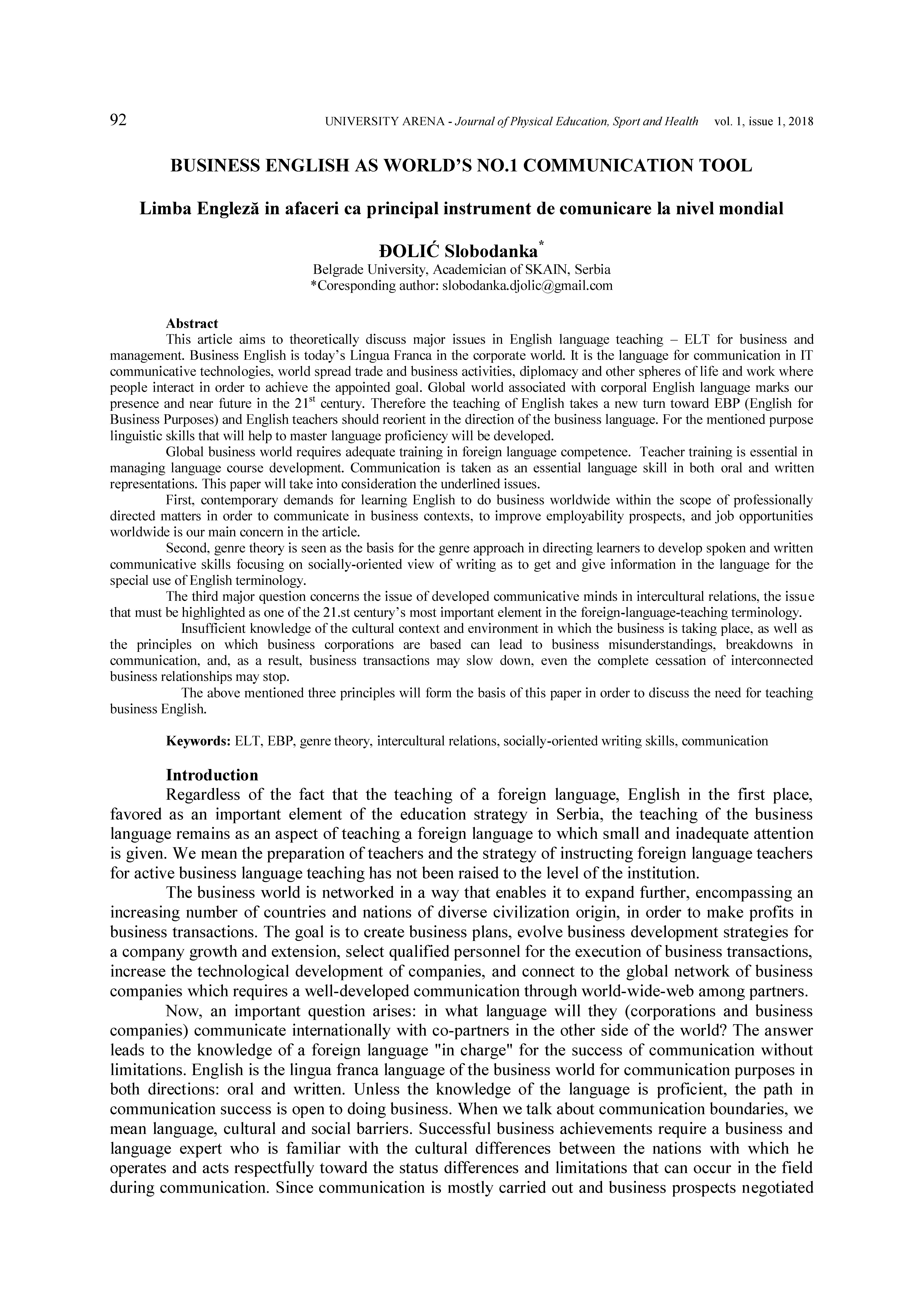BUSINESS ENGLISH AS WORLD’S NO.1 COMMUNICATION TOOL
DOI:
https://doi.org/10.62229/UaI_1_18-17Keywords:
ELT, EBP, genre theory, intercultural relations, socially-oriented writing skills, communicationAbstract
This article aims to theoretically discuss major issues in English language teaching – ELT for business and management. Business English is today’s Lingua Franca in the corporate world. It is the language for communication in IT communicative technologies, world spread trade and business activities, diplomacy and other spheres of life and work where people interact in order to achieve the appointed goal. Global world associated with corporal English language marks our presence and near future in the 21st century. Therefore the teaching of English takes a new turn toward EBP (English for Business Purposes) and English teachers should reorient in the direction of the business language. For the mentioned purpose linguistic skills that will help to master language proficiency will be developed. Global business world requires adequate training in foreign language competence. Teacher training is essential in managing language course development. Communication is taken as an essential language skill in both oral and written representations. This paper will take into consideration the underlined issues. First, contemporary demands for learning English to do business worldwide within the scope of professionally directed matters in order to communicate in business contexts, to improve employability prospects, and job opportunities worldwide is our main concern in the article. Second, genre theory is seen as the basis for the genre approach in directing learners to develop spoken and written communicative skills focusing on socially-oriented view of writing as to get and give information in the language for the special use of English terminology. The third major question concerns the issue of developed communicative minds in intercultural relations, the issue that must be highlighted as one of the 21.st century’s most important element in the foreign-language-teaching terminology. Insufficient knowledge of the cultural context and environment in which the business is taking place, as well as the principles on which business corporations are based can lead to business misunderstandings, breakdowns in communication, and, as a result, business transactions may slow down, even the complete cessation of interconnected business relationships may stop. The above mentioned three principles will form the basis of this paper in order to discuss the need for teaching business English.


